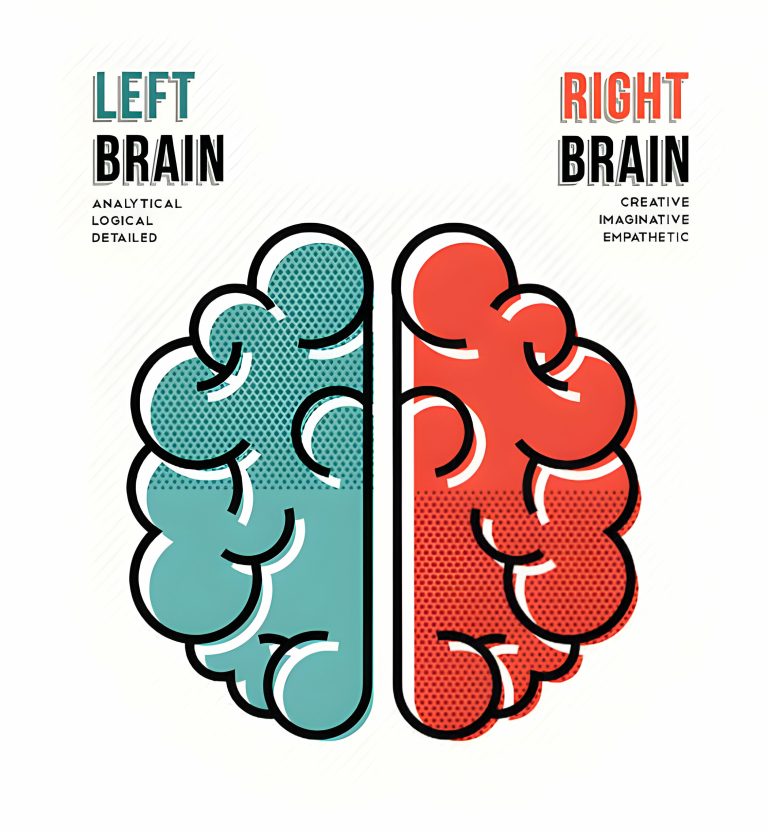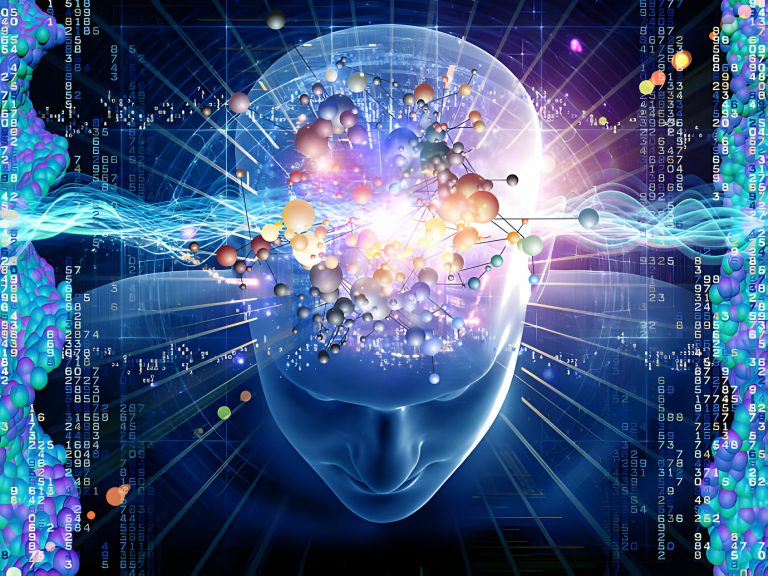6 Best Evidence-Based Supplements for Brain Fog

Have you ever experienced that frustrating feeling of brain fog, where your thoughts seem cloudy and you struggle to focus? When it comes to combating this mental haze, one key factor to consider is the role of vitamins in supporting cognitive function. Vitamins play a crucial role in brain health, helping to improve memory, concentration, and overall mental clarity. Incorporating the right vitamins into your daily routine can make a significant difference in fighting off brain fog and enhancing your cognitive abilities.
Now, let’s dive into the 6 Best Evidence-Based Supplements for Brain Fog that have been shown to have a positive impact on cognitive function. First on the list is Vitamin B12, known for its role in energy production and nerve health. Studies have linked Vitamin B12 deficiency to symptoms of brain fog, making it a vital supplement to consider. Next up is Omega-3 fatty acids, which are essential for brain health and have been shown to improve cognitive function and reduce inflammation in the brain. Another key supplement is Vitamin D, which has been associated with improved mood and cognitive performance.
Moving on, we have Magnesium, a mineral that plays a crucial role in nerve function and can help alleviate symptoms of brain fog. Gingko Biloba is another supplement worth considering, as it has been shown to improve memory and cognitive function by increasing blood flow to the brain. Lastly, we have Rhodiola Rosea, an adaptogenic herb that has been used for centuries to reduce stress and improve mental clarity.
In the upcoming sections, we will delve deeper into the specific benefits of each of these supplements, discussing the research behind their effectiveness and how they can be integrated into your daily routine. By incorporating these evidence-based supplements into your regimen, you can take proactive steps towards reducing brain fog and optimizing your cognitive performance. Let’s explore the world of brain-boosting supplements together and unlock the full potential of your mind.
- Vitamin B12 deficiency can contribute to brain fog, making it important to ensure adequate levels of this vitamin in the body.
- Omega-3 fatty acids, particularly DHA, play a crucial role in brain health and can help improve cognitive function and combat brain fog.
- Vitamin D deficiency has been linked to cognitive impairments and brain fog, making it essential to maintain optimal levels of this vitamin.
- Ashwagandha, an adaptogenic herb, can help reduce stress and improve cognitive function, potentially alleviating symptoms of brain fog.
- Ginkgo biloba has shown promising results in enhancing memory and cognitive function, making it a beneficial supplement for combating brain fog.
- Rhodiola rosea is another adaptogenic herb that can help boost cognitive function, reduce fatigue, and improve overall mental clarity, making it a valuable supplement for managing brain fog.
Definitions:
Brain fog: a term used to describe cognitive dysfunction or lack of mental clarity, often characterized by confusion, forgetfulness, and difficulty concentrating.
Vitamins: organic compounds essential for normal growth and function of the body, obtained through diet as the body is unable to produce them in sufficient quantities.
Supplements: products taken orally that contain a “dietary ingredient” intended to supplement the diet.
Brain fog can be a frustrating and distressing experience, impacting daily activities and overall quality of life. Many factors can contribute to brain fog, including stress, lack of sleep, poor nutrition, and underlying health conditions. Inadequate intake of essential vitamins and nutrients can also play a significant role in cognitive function and mental clarity. Fortunately, there are several evidence-based supplements that have shown potential in supporting brain health and alleviating symptoms of brain fog. Let’s explore some of the best vitamins for brain fog that you can incorporate into your daily routine.
Healthy Lifestyle Changes for Mental Clarity
Cutting out processed foods and sugars from your diet can have a significant impact on your mental clarity. By focusing on whole, nutrient-dense foods such as fruits, vegetables, lean proteins, and healthy fats, you can provide your brain with the necessary fuel to function optimally. In addition, staying hydrated by drinking plenty of water throughout the day can help support cognitive function and prevent brain fog. Regular exercise is also essential for maintaining mental clarity, as physical activity can increase blood flow to the brain and promote the release of endorphins, which are mood-boosting chemicals.
Mindfulness Practices to Combat Brain Fog
Incorporating mindfulness practices into your daily routine can help reduce stress and improve concentration, ultimately combatting brain fog. Techniques such as meditation, deep breathing exercises, and yoga can help calm the mind and increase mental clarity. Taking time to pause and practice mindfulness throughout the day can also help improve cognitive function and enhance overall well-being. By being present in the moment and acknowledging any feelings of overwhelm or distraction, you can better manage stress and prevent brain fog from clouding your thoughts.
The Importance of Quality Sleep for Brain Health
Prioritizing quality sleep is essential for maintaining brain health and avoiding brain fog. Getting 7-9 hours of restful sleep each night can help improve cognitive function, memory, and concentration. Creating a bedtime routine and optimizing your sleep environment can help promote deeper, more restorative sleep. Avoiding caffeine and electronic devices before bed can also improve sleep quality and prevent disruptions that may contribute to brain fog. By making sleep a priority and establishing healthy sleep habits, you can support your brain’s ability to function at its best.
1. What is brain fog and how does it impact everyday life?
Brain fog is a term used to describe symptoms that affect cognitive function, such as memory, focus, and clarity of thought. It can make it difficult to concentrate, remember things, or make decisions. Brain fog can impact everyday life by affecting work, relationships, and overall quality of life.
2. What are evidence-based supplements for brain fog?
The 6 best evidence-based supplements for brain fog are Omega-3 fatty acids, Bacopa monnieri, Rhodiola rosea, Gingko biloba, Panax ginseng, and Lion’s mane mushroom. These supplements have been shown in various studies to improve cognitive function, memory, and focus.
3. How do Omega-3 fatty acids help with brain fog?
Omega-3 fatty acids are essential nutrients that are important for brain health. They help improve cognitive function by reducing inflammation in the brain, promoting the growth of new brain cells, and enhancing communication between brain cells. Omega-3 fatty acids have been shown to improve memory, focus, and overall cognitive function in individuals with brain fog.
4. What is the role of Bacopa monnieri in reducing brain fog?
Bacopa monnieri is an herb that has been used in traditional Ayurvedic medicine for centuries to improve cognitive function. It is known for its ability to enhance memory, focus, and mental clarity. Bacopa monnieri works by increasing blood flow to the brain, reducing inflammation, and protecting brain cells from damage. Studies have shown that Bacopa monnieri can effectively reduce brain fog and improve cognitive function.
5. How does Rhodiola rosea help with mental clarity?
Rhodiola rosea is an adaptogenic herb that has been used for centuries to help the body adapt to stress and improve mental clarity. It works by balancing stress hormones, increasing energy levels, and enhancing cognitive function. Rhodiola rosea has been shown to improve memory, focus, and overall mental clarity in individuals experiencing brain fog.
6. Can Gingko biloba help with memory and focus?
Gingko biloba is a popular herbal supplement known for its ability to improve memory and focus. It works by increasing blood flow to the brain, enhancing oxygen and nutrient delivery to brain cells, and protecting brain cells from damage. Gingko biloba has been shown to improve cognitive function, memory, and focus in individuals with brain fog.
7. How does Panax ginseng improve cognitive function?
Panax ginseng is an adaptogenic herb that has been used in traditional Chinese medicine for centuries to improve cognitive function. It works by reducing inflammation in the brain, increasing energy levels, and enhancing focus. Panax ginseng has been shown to improve memory, attention, and overall cognitive function in individuals with brain fog.
8. What benefits does Lion’s mane mushroom offer for brain fog?
Lion’s mane mushroom is a type of medicinal mushroom that has been shown to improve cognitive function, memory, and focus. It works by stimulating the growth of new brain cells, reducing inflammation in the brain, and protecting brain cells from damage. Studies have shown that Lion’s mane mushroom can effectively reduce brain fog and improve overall cognitive function.
9. Are there any potential side effects of taking these supplements for brain fog?
While the 6 best evidence-based supplements for brain fog are generally safe for most people, some individuals may experience mild side effects such as digestive issues, headaches, or allergic reactions. It is important to consult with a healthcare provider before starting any new supplement regimen to determine if they are safe and appropriate for you.
10. How long does it take to see results from taking these supplements for brain fog?
The time it takes to see results from taking these supplements for brain fog can vary depending on the individual and the severity of their symptoms. Some people may experience improvement in cognitive function, memory, and focus within a few weeks of starting a supplement regimen, while others may take longer to notice significant changes. It is important to be patient and consistent with taking the supplements as directed to achieve the best results.
Final Thoughts
In conclusion, incorporating evidence-based supplements such as vitamins for brain fog can significantly improve cognitive function and alleviate symptoms of brain fog. The six best supplements identified in this article include Omega-3 fatty acids, Bacopa monnieri, Rhodiola rosea, Ginkgo biloba, Huperzine A, and Acetyl-L Carnitine. These supplements have been extensively researched and proven to enhance brain health by boosting memory, concentration, and overall cognitive performance.
It is essential to note that while supplements can be beneficial, they should not replace a healthy diet and lifestyle. A balanced diet rich in fruits, vegetables, lean proteins, and whole grains is crucial for optimal brain function. Additionally, regular exercise, quality sleep, stress management, and cognitive activities can further support brain health and reduce brain fog.
Before starting any supplement regimen, it is recommended to consult with a healthcare professional to ensure safety and effectiveness. Individual needs and health conditions vary, so personalized guidance is essential when selecting and dosing supplements. By incorporating these evidence-based supplements and adopting a holistic approach to brain health, individuals can combat brain fog and improve overall cognitive function for better quality of life.




